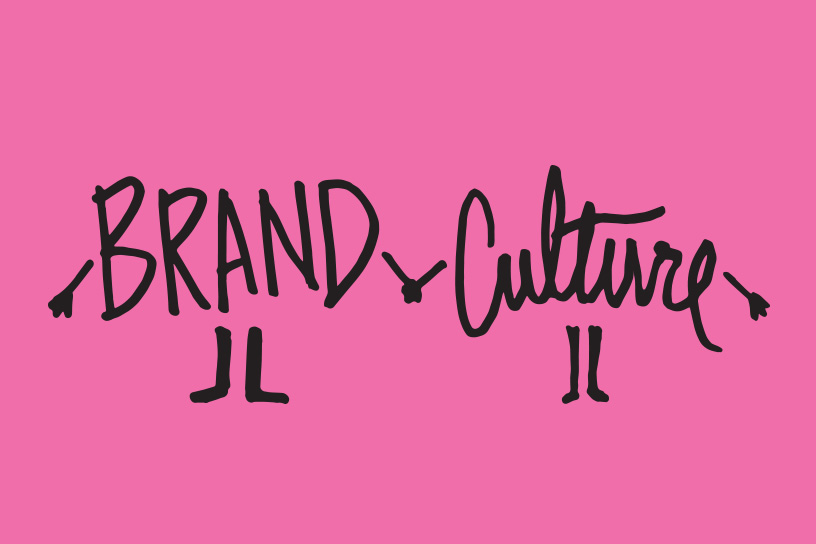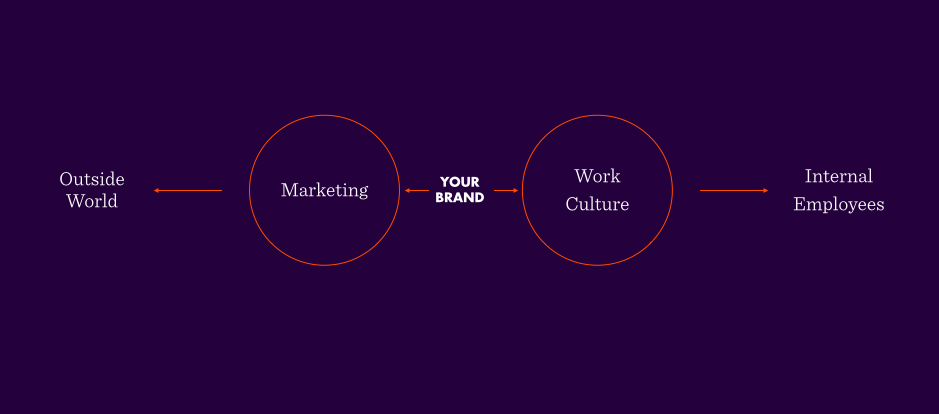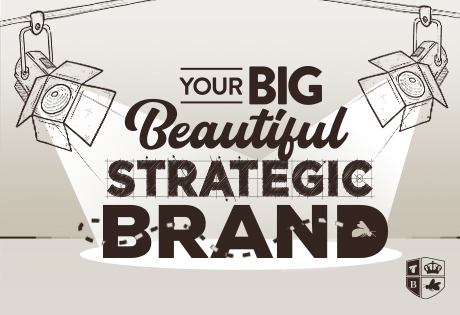Building Brand Culture: Why > What
Recently, BatesMeron President Becka Bates invited me to join her at Vistage, an executive leadership advisory group that meets monthly. During this particular session, psychologist and culture change expert Dr. Gustavo Grodnitzky came in to speak to us about the impact of culture on success in business. A fascinating presentation from start to finish, Dr. Gustavo made the case that culture is what drives the behavior of employees and ultimately does more to help companies achieve their goals than any other single factor.
 A visual thinking sketch from a fellow attendee to one of Dr. Gustavo’s culture talks.
A visual thinking sketch from a fellow attendee to one of Dr. Gustavo’s culture talks.
One of the main takeaways that Dr. Gustavo shared was centered on the idea of cause. On a business level, your cause is why you do what you do. It’s your big picture and your purpose. It can be anything that customers and employees alike can rally behind. Change the world? Yes. Redefine how human beings communicate with one another? Absolutely. Introduce North America to the heretofore under-appreciated cuisine of Uzbekistan? Yes (and yum). The point is that it’s action oriented—but it’s important to note that it isn’t your profit motive, this is a result.
While Dr. Gustavo was focused on a company’s culture, I was immediately attracted to the idea of taking this idea of cause one tiny half step further. It might seem like splitting hairs at first, but what if we think about a brand instead of a company and apply Dr. Gustavo’s concept of cause to building your brand culture?
Brand Mission vs. Brand Cause
At BatesMeron, we have an extensive discovery, messaging and design process we go through with our branding clients. Our purpose in this process is, of course, to provide our clients with a clear picture of how their brand thinks and behaves, and how it should be marketed to the world.
It includes a number of components familiar to marketers but often new to our clientele—things like your Reasons to Believe or your Value Proposition. We go to great lengths before we start, during our creative process and at the time of our final presentation to ensure clients understand each portion of our process and why it’s beneficial to their brand and their business.

One component we rarely have to explain is a brand’s mission statement. This is a concept business owners understand and see value in. Oddly enough, when a brand’s mission is looked at through Dr. Gustavo’s ’cause’ lens, it no longer looks like as vital it’s often held up to be.
See, your brand mission is your what. It’s what your brand seeks to do and accomplish. Don’t get me wrong, this is a massively important thing to define. It helps customers and employees understand why you exist. But, that doesn’t go far enough to help them understand why they should be dedicated to you versus another brand or employer. That’s what your brand cause does.
A Cause Your Brand Culture Can Get Behind
As Dr. Gustavo put it during his talk, leaders get people to achieve goals others cannot, but culture gets people to achieve goals others cannot even imagine. In other words, cause drives behavior, mission does not. And behavior, be it from consumers or staff, is something marketers and managers are always seeking to influence.
Your cause is the factor that is going to inspire action on behalf your brand—from the team members who work to make sure your brand is always its best to the customers that faithfully choose you over the competition. This is the stuff authenticity is built on.

Authenticity is the brand buzz word of the new millennium. It’s the ultimate intangible capital that all brands crave. That authenticity doesn’t exist solely because an agency like BatesMeron makes you look and sound hip (although that goes a long way). That authenticity exists because an agency like ours helps you find your why. We help define your cause and build a lasting brand culture around it.
If you’d like to learn more about the BatesMeron branding process and how we can help you find your brand’s why, let us know. And if you have any thoughts on Dr. Gustavo’s ideas about corporate or brand culture, drop us a line in the comments. We’d love to hear what you think.
Food Packaging: Mouthwatering Design
Your Twitter Strategy: Getting Creative in 140 Characters
Advertising For The Win










